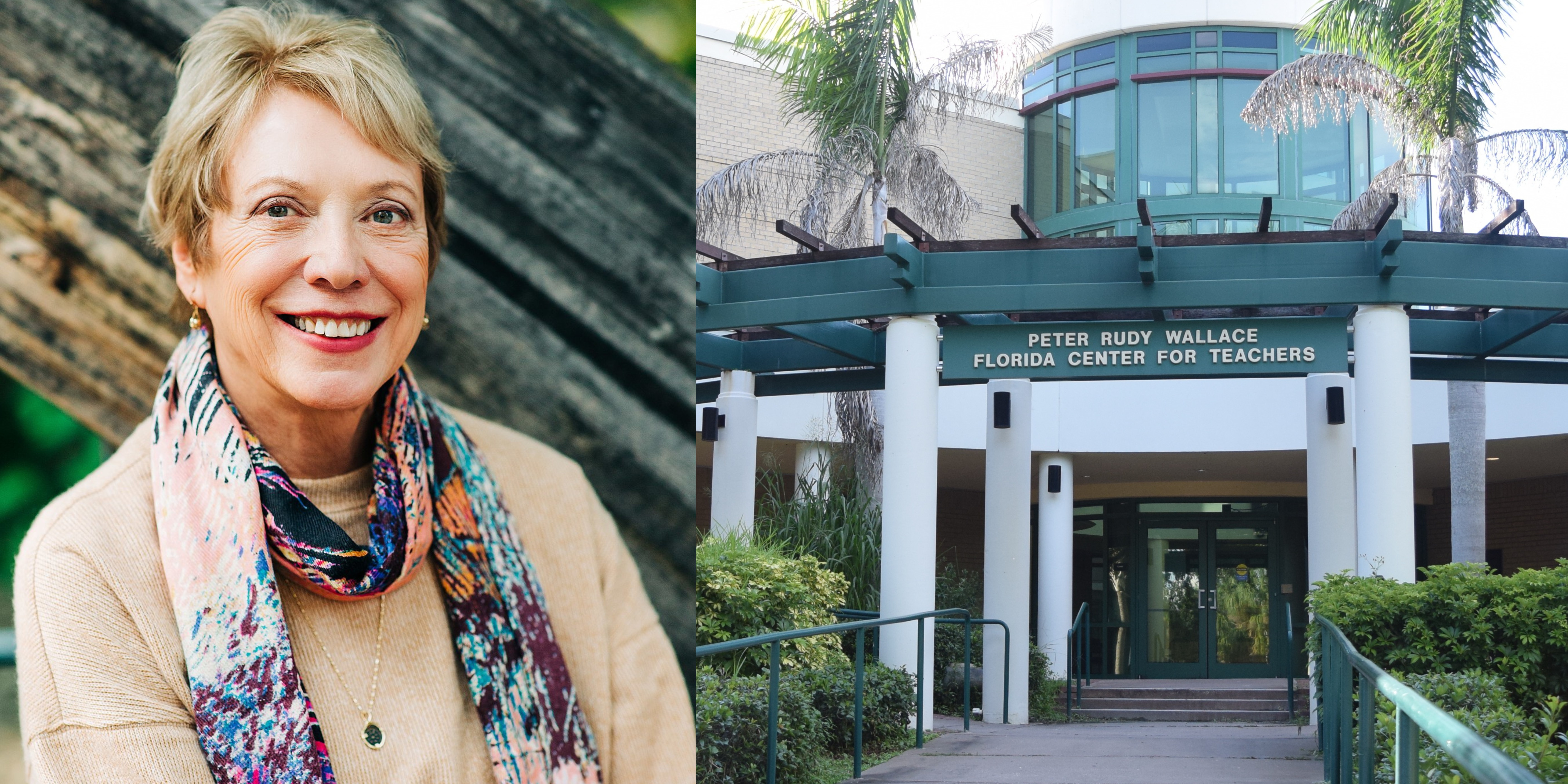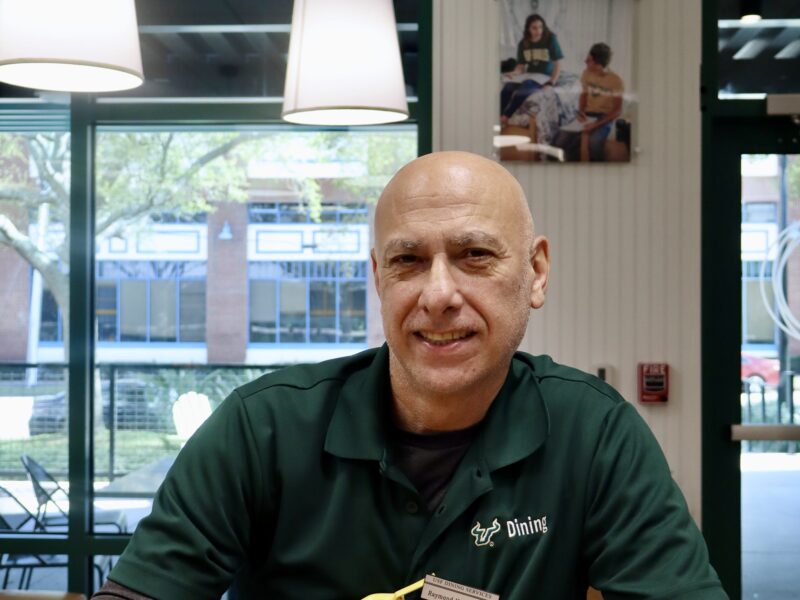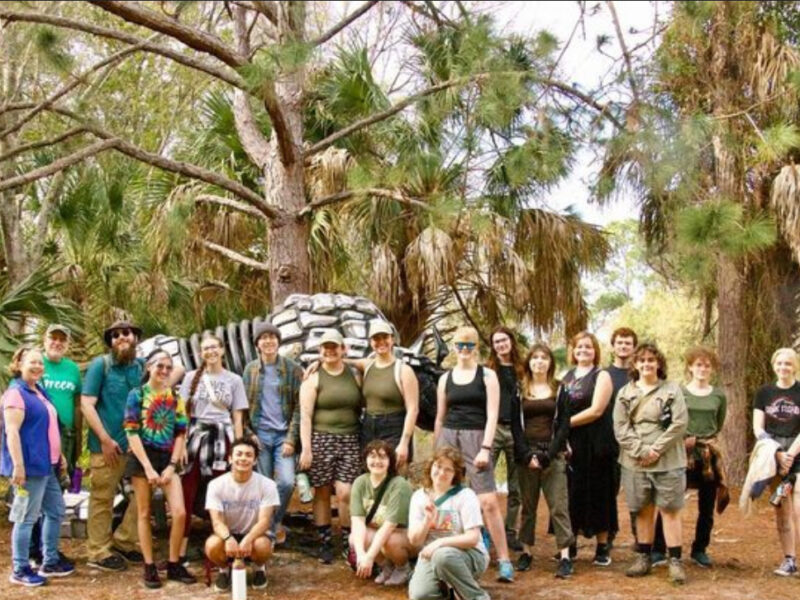Images courtesy of Kristine Paulsen and Jonah Hinebaugh
After nearly 20 years as the Eleanor Poynter Jamison Chair in Media Ethics and Press Policy, Department of Journalism and Digital Communication, Professor Deni Elliott is retiring in August 2023. A new hire is expected to take the position by 2024 at the University of South Florida St. Petersburg campus.
The Eleanor Poynter Jamison Chair is a prestigious and research-heavy position that inevitably contributes to bringing recognition to the university and is responsible for thoughtfully planning ways to produce community journalism and other forms of multimedia content.
Elliott has been actively doing this since the ’80s. She has given seminars worldwide and published nine books in the field of ethics and over 200 articles and book chapters for scholarly, trade and lay press, according to her USF faculty and staff biography.
The minimum qualifications for the chair include a doctorate degree, an exceptional record of scholarship in media ethics, teaching experience at the undergraduate and graduate levels and meeting university criteria for appointment to the rank of professor or associate professor.
In addition to those standards, the new chair is envisioned as “Somebody who is focused on the future of ethics and all the new technologies unfolding before our eyes that will sculpt how journalism is produced,” Department of Journalism and Digital Communication Chair, Casey Frechette said.
He noted things like artificial intelligence and machine learning and “all of these evolutions in technology that will turn journalism upside down,” Frechette said.
“Our department here is headed in a very important way. It’s focused on STEM … it’s focused on data and digital visualization, and so the Eleanor Poynter Jamison Chair needs to be somebody who works well with science and technology and ethics issues,” Elliott said.
Committee board member and USF graduate student Brianna Bush suggested that the next Poynter Jamison Chair needs to be unique.
“We’re not looking for someone who’s just journalism-based,” Bush said.
Bush emphasized that the newest Eleanor Poynter Jamison Chair must be adaptable rather than having traditional or “cookie-cutter” qualities.
The title of an “endowed chair” is a relatively new one in the field of media ethics in the United States. The term arose in the 1990s, and the University of South Florida’s Eleanor Poynter Jamison endowed chair position was one of the first in the nation, beginning in 1993.
Hence only one other professor held the position before Elliott. Consequently, the next person to hold the position will have plenty of room for impact.
One distinction of endowed chairs is that their work is research-based and secondarily teaching-based, which frees them from the typical duties of a standard professor to focus on their primary interest –– research.
An endowed fund partially pays their salaries. An endowment is a monetary gift invested in a fund to generate revenue every year to support a position. It is meant to fund itself in perpetuity, or forever, through donations for research.
There is another ethics professorship at USF St. Petersburg titled the Marie E. and E. Leslie Cole Endowed Chair in Ethics, filled by Professor Tiffany Chenneville in the Department of Psychology.
Nelson Poynter, the founder of the Poynter Institute, participated in the groundbreaking of USF St. Petersburg’s campus expansion in 1978, and as a result, the campus library is named in his honor.
Through this relationship, the Eleanor Poynter Jamison Chair got its name. Eleanor was Poynter’s surviving sister, who died decades later.
Since that historic day in 1978, Elliott, who came to the campus in 2003, can recall that USF and the Poynter Institute collaborated through the department curriculum on and off throughout her years.
While there is no active partnership with the Poynter Institute now, Frechette looks forward to a time of alignment between the campuses to benefit both organizations.
“We are interested in hiring someone who is really a leader in journalism ethics. Someone who will bring a lot of experience. At least national or international recognition. A really seasoned academic to join us,” Frechette said.
While holding the chaired position, Elliott filled the Interim Regional Vice Chancellor of Academic Affairs and Vice Provost role at the USF St. Petersburg campus for one year and four months until stepping down in December 2022.
Although it was a temporary role, the position took priority over her schedule, and as a result, her teaching capacity as a chair was put on hold.
Now, Elliott is exiting her endowed chaired position but not the university. She will transition into another honorary role as an Emeritus Professor for retired faculty. In other words, the university has recognized her as an ethicist for life.
With a smile, she left this advice for USF Bulls, “bring your best self to our campus community,” she said.
Department of Journalism and Digital Communication students can expect the next Eleanor Poynter Chair to bring community opportunity and mentorship in navigating ethics in journalism as it evolves to be more technologically complex.




Great read, she will be missed!